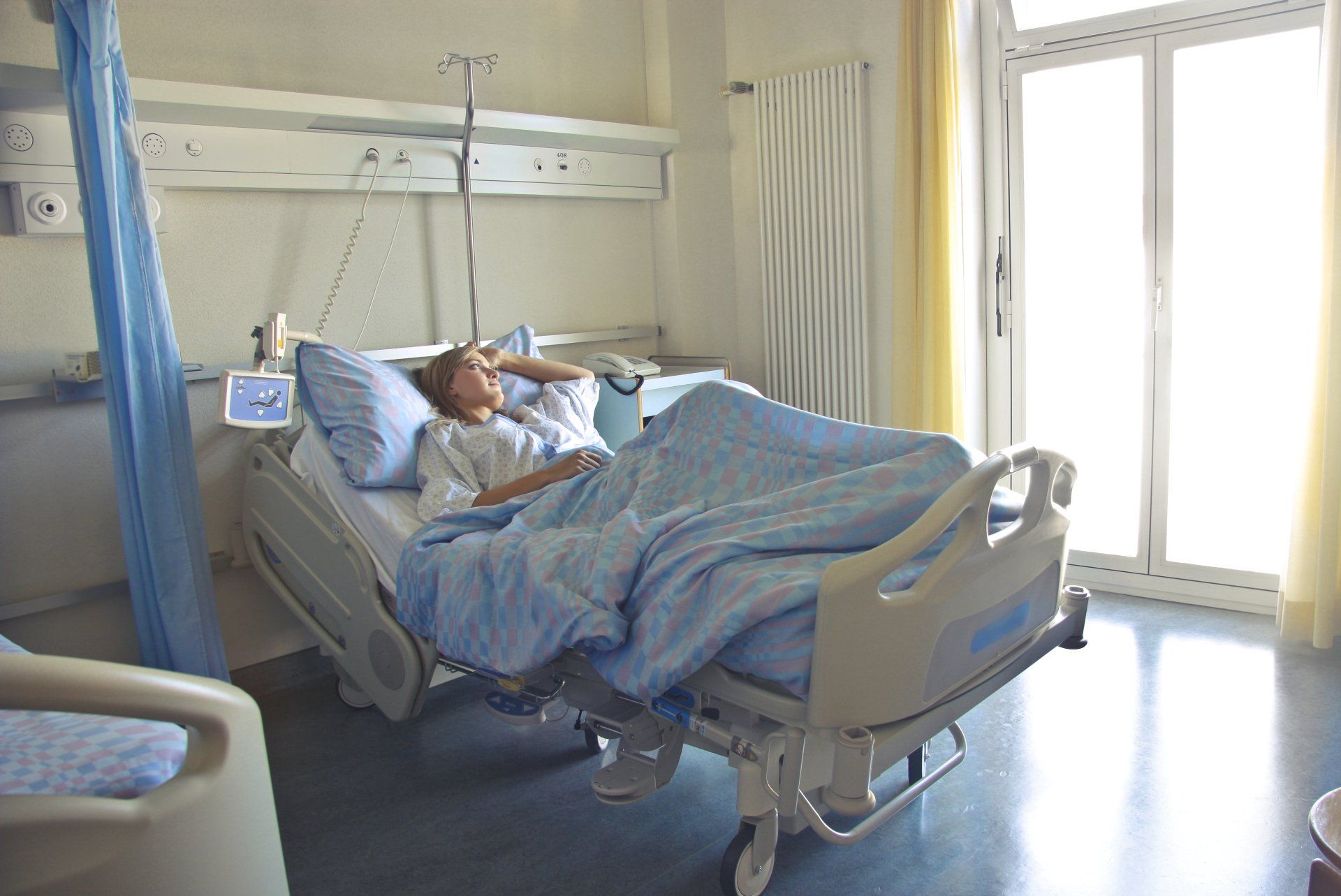Guest Blog by Michelle Mayesfke, author of Fat Birth
Michelle is a certified birth and postpartum doula, childbirth educator, hypnobirthing teacher, yoga teacher and the author of Fat Birth. She has made it her mission to change the way people approach fat pregnancy and birth. Through her teaching and social media networks, she seeks to empower and educate plus size expecting parents-and their birth partners-so they may seek the positive birth they want and deserve
Orla was so overjoyed when she saw those two pink lines on her pregnancy test. She had always wanted to be a mother and it was really happening. Her joy soon began to fade during her booking appointment at the maternity hospital. As someone who had always been "the bigger girl," Orla was used to unsolicited comments about her weight- but the remarks by midwives and doctors made her wince.
"You need to be extra careful now. A person of your size can develop complications at any time. How did you let yourself get this big?"
Orla was constantly worrying about gaining "too much weight," developing gestational diabetes and she felt like she was harming her baby just by existing in a bigger body. The closer she got to her baby's estimated birth date, the more intense the feelings grew.
The disrespectful treatment Orla experienced may seem unbelievable, but the reality is that many plus size parents are treated differently because of their size. Weight bias is the collection of negative beliefs and opinions people have associated with weight. It may also be called anti-fat bias or fatphobia. In Ireland, people in bigger bodies are often portrayed as lazy overeaters with a lack of willpower and motivation. The reality is anyone can display these characteristics. These harmful beliefs and attitudes translate into discriminatory behaviours, weight stigma, which impact the support people of size receive. It creeps into maternity care more subtly or is very obvious, like the comment from Orla's doctor.
Pregnancy is already a time of vulnerability and the last thing anyone needs is a provider making them feel bad about their body. This is the information you need to know to ensure your best interest is the focus of your care.
FACT: Maternity Care is Fatphobic
Sadly, the medical community is rife with anti-fat bias and maternity care is no exception. One of the biggest flaws within Irish maternity care is its over-reliance on BMI. The body mass index (BMI) is an outdated form of measure created by a Belgian mathematician over two hundred years ago that was used for statistical purposes for large populations, not individuals. It uses a person’s height and weight ratio to create a number (from 18.5-40+) which is now nothing more than a facade of health or ill health.
This outdated body statistic still influences maternity care in negative ways. It places complex individuals into boxes, with those of us at the further (larger) end of the scale often being classed as "high risk." Once this label is given to someone, limitations may begin to take hold. For example, those with a BMI of 35+ require a consultant review to access what is standard care for others, including community midwifery clinics, using a pool in the hospital and for home birth support from community midwives.
Fatphobia presents in other ways, often experienced during antenatal appointments and labour itself. These are some examples:
- Being told you must be tested for gestational diabetes repeatedly–beyond the standard two tests, both of which came back as normal. This is often fueled by assumptions that are not evidence-based, like all plus size people will develop gestational diabetes.
- You are told to lose or maintain your weight during pregnancy “for the sake of your baby”, despite the fact that there is no correlation between how much someone weighs and how healthy they are.
- A weight biased consultant believes fat* people are “too big” and “too weak” to birth their babies vaginally. They tell you a caesarean is the best option for you without leaving room for discussion.
- You're told, “All big moms make big babies,” so an induction at thirty-eight weeks is suggested, although this is not evidence based practice.
Weight stigma experienced during pregnancy is associated with higher rates of stress and depression, an increase in disordered eating habits and higher weight retention following birth.There are also higher rates of intervention for plus size people, including the use of internal foetal scalp electrodes, inductions and caesareans. While this information may be hard to digest, the good news is there is so much you can do to improve your experience, work around the biases of others and ensure you have a positive birth experience no matter what path labour takes.
Size-Friendly Providers
Finding a size-friendly provider is one way you can advocate for yourself. If you are a private patient, you can hire a consultant who has the qualities you desire. Public patients can also request a new consultant, although this is not advertised openly. Alternatively, you may choose to hire a midwife publicly or privately for a home birth, as midwives tend to be more size-friendly. A size-friendly provider has the following qualities:
Awareness of their own biases
- Provides compassionate support for people of all sizes and abilities
- Does not class you as “high risk” based on BMI alone
- Does not make assumptions about your level of physical activity and food choices
- Treats you with dignity and respect
- Understands the importance of informed choice
The Importance of Boundaries
Finding a size-friendly provider may be more difficult than you expect. It may also be impossible to find a consultant or midwife within your budget, who serves your area or who you have great rapport with. This is where setting boundaries can be even more important.
You can set boundaries in many different ways and they all vary depending on your preferences. For example, some people choose not to be weighed at all during pregnancy or have a “blind weight” taken—stepping on the scale and having the consultant or midwife write down the number without it being shared with you. This is important for people who may struggle with knowing their weight, who have a history of disordered eating or seeing the number go up and down.
If a provider keeps mentioning your weight during antenatal visits, you have every right to ask them to stop. This may sound like, “I am aware of my weight and how it may impact my experience, however, I do not want the rest of my pregnancy revolving around it.” People of size should not have to do this additional work, including having these difficult conversations and setting boundaries— but it is so important.
Getting Informed
Knowledge is power and this is especially important for plus size folks who are often given exaggerated risks during pregnancy. How information is presented matters. For example, a consultant may say, "You are three times more likely to have gestational diabetes due to your BMI." While this may be true, this is only presenting you with the relative risk—when one BMI category is compared to another. This does not tell you the actual risk of you developing gestational diabetes. When you look at the research, even those in the highest BMI category ≥40 have a 20% chance of developing gestational diabetes. This is three times the level of risk (6.74%) for someone in the 25 to <30 BMI category. This may sound scary or almost like a guarantee, but it is not the full picture. We could discuss this topic another way by saying someone with a BMI of ≥40 has a 80% chance of not developing gestational diabetes. When practitioners give these statistics, they are often only sharing the relative risk with no discussion about prevention.
You do not need to be a researcher to find statistics. A quick online search can help you and there are many other size-friendly resources.
If you identify as plus size, a person of size, or any of the other terms used to describe someone in a bigger body, I want you to know this: you are worthy of compassionate, respectful care. Weight bias exists within the Irish maternity system but it is not something you have to accept. Finding a size-friendly provider, setting boundaries if and when needed, and getting informed on all of the topics that impact plus size birth will help you navigate your pregnancy.
Instagram: @fat.and.pregnant
Resources:
1) Angela C. Incollingo Rodriguez, C. Dunkel Schetter, A. Brewis, and A.J. Tomiyama. "The Psychological Burden of Baby Weight: Pregnancy, Weight Stigma, and Maternal Health." Social Science & Medicine, no 235 (2019). https://www.sciencedirect.com/science/article/abs/pii/S0277953619303879




